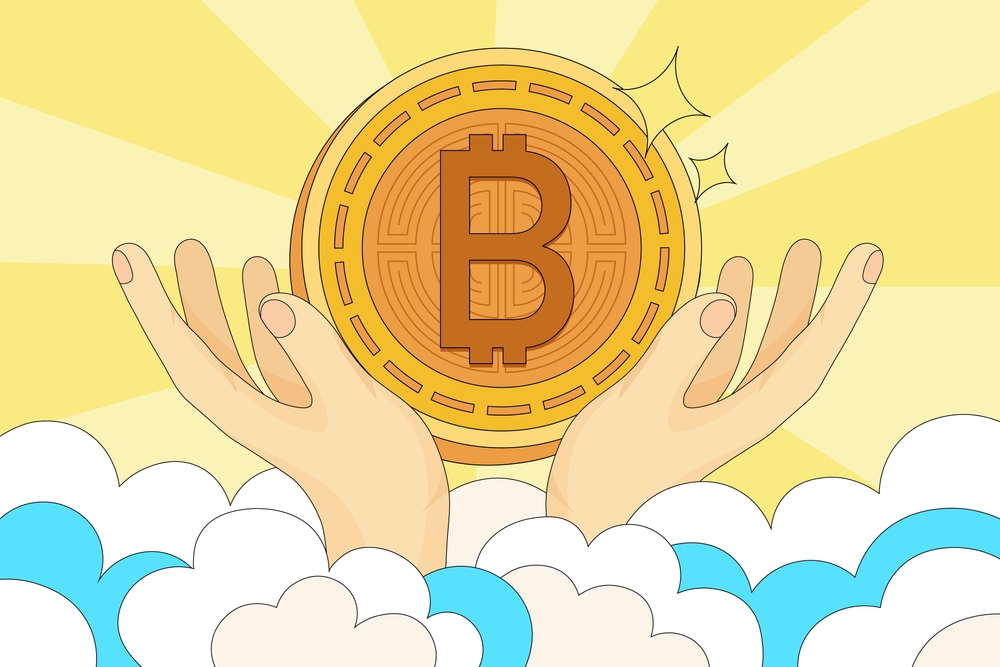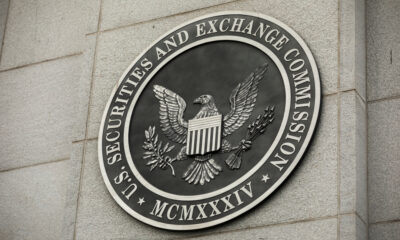crypto companies
Dollar Strength Causes Bitcoin Weakness – Blockchain News, Opinion, TV and Jobs
Published
2 years agoon
By
admin
By Marcus Sotiriou, Analyst at the UK based digital asset broker GlobalBlock
Bitcoin remains below the 2017 all-time-high which is concerning for bulls. The LUNA and UST crash has led to a tragic contagion amongst other crypto firms, as we have seen liquidity withdrawn from the crypto market at an extraordinary rate.
In the Bank of England’s financial stability report on Tuesday, the bank’s Financial Policy Committee (FPC) briefly addressed cryptocurrencies. The report noted that while crypto poses a less immediate risk it is nonetheless important to monitor, as several vulnerabilities have been exposed during the recent market downturn. The bank noted the following vulnerabilities:
“Liquidity mismatches leading to run dynamics and fire sales, and leveraged positions being unwound and amplifying price falls. Investor confidence in the ability of certain so-called ‘stablecoins’ to maintain their pegs was weakened significantly, particularly those with no or riskier backing assets and lower transparency.”
Unfortunately, the UK’s financial watchdog (FCA) is well behind the curve. Just 33 crypto companies have been awarded licenses in the U.K. so far. The current regulatory direction of the U.K. puts the country at risk of falling behind the U.S., European Union, and other regions.
Last week, domestic watchdogs from the U.K. and U.S. participated in a meeting and acknowledged the importance of teaming up to strengthen regulatory outcomes for crypto whilst supporting innovation.
This is a step in the right direction, however, there’s a lot of work to be done if the U.K. wants to live up to the goal of becoming the ‘global hub’ for crypto.
Source link
You may like


Multicoin Capital pledges up to $1m to pro-crypto Senate candidates


MATIC Price Crash: Reaching A Two Year Low


Multicoin Pledges up to $1M for Pro-Crypto Senate Candidates


Crypto heists near $1.4b in first half of 2024: TRM Labs


FTX Founder Sam Bankman-Fried’s Family Accused Of $100M Illicit Political Donation


Bitcoin Price Falls as Mt Gox Starts Repayments
Binance
Binance.US Suspends Trading for Several Crypto Pairs Following a Lawsuit Filed by the SEC – Blockchain News, Opinion, TV and Jobs
Published
1 year agoon
June 8, 2023By
admin
Binance.US, the US arm of the cryptocurrency exchange Binance, has suspended trading for several crypto pairs and reduced its supported convert trading pairs following a lawsuit filed by the US Securities and Exchange Commission (SEC) against Binance entities and their leadership. The move is seen as a precautionary measure to address potential securities concerns raised by the SEC.
This move came after the SEC filed a lawsuit against Binance on June 5, accusing the exchange of offering unregistered securities. The charges include unregistered offers and sales of BNB and BUSD tokens, as well as various products and programs offered by Binance. Similarly, Coinbase, another popular cryptocurrency exchange, was also targeted by the SEC in a separate lawsuit, alleging the offering of securities in the form of certain cryptocurrencies like SOL, MATIC, and The Sandbox.
Binance.US announced that it would remove certain selected advanced trading pairs on June 8, 2023, and has also paused its Over-The-Counter (OTC) Trading Portal. Over 90 trading pairs of the stablecoin Tether (USDT), eight Bitcoin (BTC) pairs, and two Binance USD (BUSD) pairs are affected by this suspension. However, deposits and withdrawals remain available on the platform.
A spokesperson for Tether suggested that the decision to halt trading for non-USDT tokens could be a preemptive move considering the possibility that these tokens listed on the exchange might be considered securities by the SEC.
Furthermore, Binance.US has reduced the number of supported convert trading pairs and limited options to buy, sell, and convert only a select few cryptocurrencies, including USDT, USD Coin (USDC), BNB, Ether (ETH), BTC, and others. The exchange has also updated the maximum trade amount for these options to $10,000.
Additionally, Binance.US temporarily shut down its OTC trading platform, but there is no information available regarding when it will resume operations.
Binance’s efforts to improve transparency of its reserves have recently exposed red flags in the crypto exchange’s finances. The Wall Street Journal recently headlined with an article stating that Binance is trying to calm investors, but that its finances remain a mystery.
According to a former Financial Accounting Standards Board (FASB) member and investment manager, a report released by the audit firm Mazars did not bring any tranparency in the matter. It said that information related to the quality of internal controls and how Binance’s systems liquidate assets to cover margin loans was not there.
The report also reported a lack of information about Binance’s corporate structure. It mentioned that Binance’s chief strategy officer, Patrick Hillmann, was unable name Binance’s parent company. Binance has been going through a corporate reorganization for almost two years now.
Both Binance and Coinbase are now facing regulatory challenges, and the outcomes of these lawsuits may have significant implications for the crypto industry.
Mona el isa, formerly of Goldman Sachs, and founder of Avantgarde, one of the world’s-first institutional-grade DeFi companies, has commented on the lack of transparency and proof of reserves in centralized crypto companies like Binance. She points out that these companies do not provide meaningful proof of their asset custodianship practices, which requires implicit trust from users. According to El Isa, if there was more transparency regarding custody, the market could better differentiate between good and bad practices, allowing for effective monitoring and mitigating potential issues.
El Isa argues that decentralized, transparent on-chain funds, commonly found in decentralized finance (DeFi), could be more secure than opaque centralized finance (CeFi) funds. DeFi offers 24/7 auditable transparency, eliminating the need for trust. This viewpoint is in line with her drive to establish Enzyme, which she co-founded. Enzyme is a platform designed to automate and bring transparency to traditional asset management, aiming to create an asset management experience that empowers users through non-custodial interactions, on-chain reporting for transparency, and enforceable and automatable risk management within decentralized governance frameworks.
Source link
Blockchain
Successful Beta Service launch of SOMESING, ‘My Hand-Carry Studio Karaoke App’
Published
1 year agoon
March 31, 2023By
adminMar 18, 2023 08:43 UTC
| Updated:
Mar 18, 2023 at 08:43 UTC
By Clark
The association representing Russia’s crypto sector has asked the government in Moscow to clarify an offer to introduce felonious liability for “ argentine ” miners. The draft legislation seeks to discipline those who fail to report their income to the state and share information about their digital means.
Crypto Companies in Russia Want to Take Part in Ongoing Regulatory Efforts
The Russian Association of Cryptoeconomics, Artificial Intelligence and Blockchain( Racib) has asked Finance Minister Anton Siluanov to explain a proposal made by his department to introduce penalties for cryptocurrency miners violating the law.
In a letter addressed to Siluanov, the assiduity association requests an occasion to get acquainted with the separate draft amendments to the Criminal Code put forward by the Ministry of Finance, which give for the execution of miners for duty elusion, for illustration.
Racib is pertaining to a package of textbooks transferred by Deputy Finance Minister Alexey Moiseev to the Ministry of Economic Development, the Ministry of Justice, the Federal Tax Service, the Central Bank of Russia, and other government institutions in February.
The vittles oblige mining companies in Russia to report their income and give duty authorities with detailed information about their digital asset effects, including portmanteau addresses, in order to avoid felonious liability. Penalties for failure to do so include hefty forfeitures and indeed captivity time. Quoted by RBC Crypto, Racib’s letter states
This document has caused a lot of confusion and questions in the digital frugality business community.
The association is asking Anton Siluanov to partake the proffers with it so that its experts can study them. Likewise, Racib insists that the minister includes its representatives in the working group drafting the legislation that will regulate cryptocurrencies in Russia. A bill devoted to crypto mining is to be resubmitted to the State Duma along with the amendments to the Criminal Code.
Clark
Head of the technology.
Source link
banking networks
Crypto Market Sees Boost as Banking Networks Falter – Blockchain News, Opinion, TV and Jobs
Published
1 year agoon
March 24, 2023By
admin
The cryptocurrency market is seeing a surge in popularity as traditional banking networks struggle to keep up with demand. With the recent collapse of Silicon Valley Bank, people are increasingly looking for alternative ways to take control of their money and ensure that it is safe.
Bitcoin, in particular, is outperforming 97.6% of the 500 leading publicly traded companies in the U.S. In fact, since March 10th, the price of bitcoin has risen by 37.06%, beating the year-to-date returns of 488 S&P companies, including FedEx, Apple, and Amazon.
According to Cryptomaniaks.com, a leading crypto education platform, the price of bitcoin has surged from $20,376.32 to $27,929.17 since March 10th. This means that only 12 companies in the S&P 500 have achieved higher than 35% returns this year to date.
The surge in bitcoin’s price comes as many investors turn to stablecoins to move money around in the absence of traditional banking networks. Stablecoins are a type of cryptocurrency whose value is pegged to another asset, usually the U.S. dollar.
JPMorgan reports that stablecoin trading volumes have spiked higher since March 8th, when crypto-friendly bank Silvergate announced its voluntary liquidation and wind down of operations. Tether (USDT) has captured a larger share of the stablecoin market as a result.
The collapse of banking networks like Silvergate, Silicon Valley Bank, and Signature Bank has affected crypto firms in different ways. Crypto companies with diversified banking partners, like some exchanges, were less affected. However, in the longer term, it is vital for the crypto ecosystem to replace the banking networks that have been lost so that fiat currency can be transferred efficiently and securely between market participants, ensuring the stability of the stablecoin universe.
Furthermore, the tougher regulatory stance of the U.S. might drive crypto market participants to banking networks in Europe and Asia.
With the ongoing instability of traditional banking networks and the impressive performance of bitcoin, it is no surprise that more and more people are turning to cryptocurrency as a secure and efficient way to handle their finances.
Source link

Multicoin Capital pledges up to $1m to pro-crypto Senate candidates

MATIC Price Crash: Reaching A Two Year Low

Multicoin Pledges up to $1M for Pro-Crypto Senate Candidates

Crypto heists near $1.4b in first half of 2024: TRM Labs

FTX Founder Sam Bankman-Fried’s Family Accused Of $100M Illicit Political Donation

Bitcoin Price Falls as Mt Gox Starts Repayments

20% Price Drop Follows $87 Million Spending Outrage

More than 10 years since the collapse of Mt. Gox, users confirm reimbursements

Leading Telecom Company Taiwan Mobile Gets Crypto Exchange License

Here Are Price Targets for Bitcoin, Solana, and Render, According to Analyst Jason Pizzino

Bitcoin price plunges below $55k as Mt. Gox announces repayments

Jasmy Sheds 20% Amid Bitcoin Sell-Off

Are they a good thing?

Mt. Gox Transfers $2.7 Billion in Bitcoin From Cold Storage Amid Market Rout

What’s Next For Ethereum (ETH) as Price Hovers $3,000?

Bitcoin Dropped Below 2017 All-Time-High but Could Sellers be Getting Exhausted? – Blockchain News, Opinion, TV and Jobs

What does the Coinbase Premium Gap Tell us about Investor Activity? – Blockchain News, Opinion, TV and Jobs
BNM DAO Token Airdrop

NFT Sector Keeps Developing – Number of Unique Ethereum NFT Traders Surged 276% in 2022 – Blockchain News, Opinion, TV and Jobs
A String of 200 ‘Sleeping Bitcoins’ From 2010 Worth $4.27 Million Moved on Friday
New Minting Services

Block News Media Live Stream

SEC’s Chairman Gensler Takes Aggressive Stance on Tokens – Blockchain News, Opinion, TV and Jobs

Friends or Enemies? – Blockchain News, Opinion, TV and Jobs

Enjoy frictionless crypto purchases with Apple Pay and Google Pay | by Jim | @blockchain | Jun, 2022

How Web3 can prevent Hollywood strikes

Block News Media Live Stream

Block News Media Live Stream

Block News Media Live Stream

XRP Explodes With 1,300% Surge In Trading Volume As crypto Exchanges Jump On Board
Trending

 Altcoins2 years ago
Altcoins2 years agoBitcoin Dropped Below 2017 All-Time-High but Could Sellers be Getting Exhausted? – Blockchain News, Opinion, TV and Jobs

 Binance2 years ago
Binance2 years agoWhat does the Coinbase Premium Gap Tell us about Investor Activity? – Blockchain News, Opinion, TV and Jobs
- Uncategorized3 years ago
BNM DAO Token Airdrop

 BTC1 year ago
BTC1 year agoNFT Sector Keeps Developing – Number of Unique Ethereum NFT Traders Surged 276% in 2022 – Blockchain News, Opinion, TV and Jobs

 Bitcoin miners2 years ago
Bitcoin miners2 years agoA String of 200 ‘Sleeping Bitcoins’ From 2010 Worth $4.27 Million Moved on Friday
- Uncategorized3 years ago
New Minting Services

 Video2 years ago
Video2 years agoBlock News Media Live Stream

 Bitcoin1 year ago
Bitcoin1 year agoSEC’s Chairman Gensler Takes Aggressive Stance on Tokens – Blockchain News, Opinion, TV and Jobs




